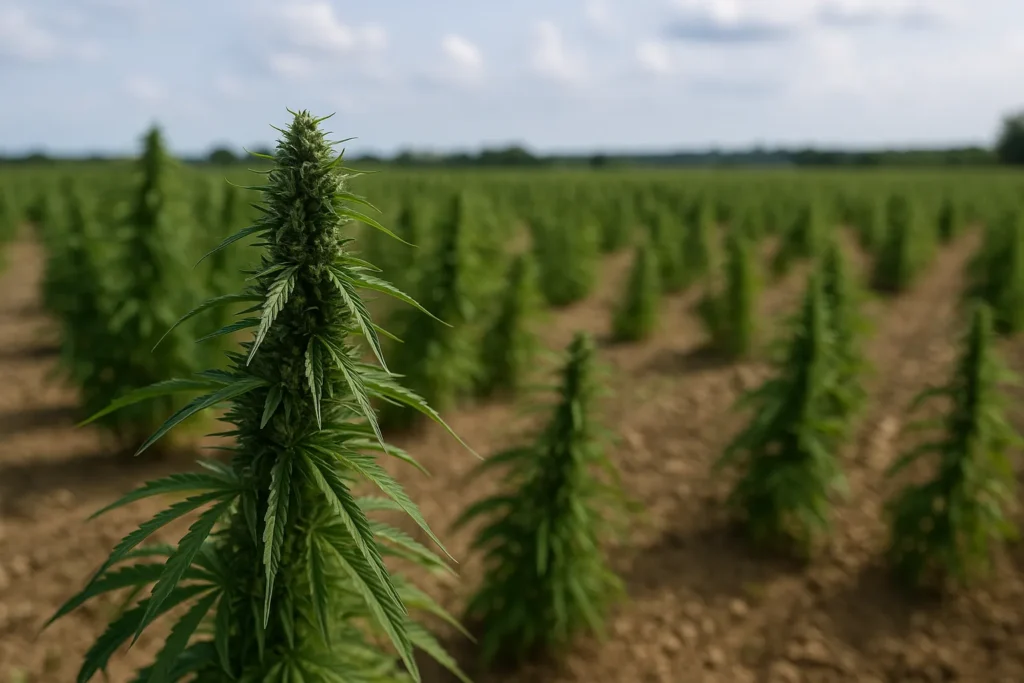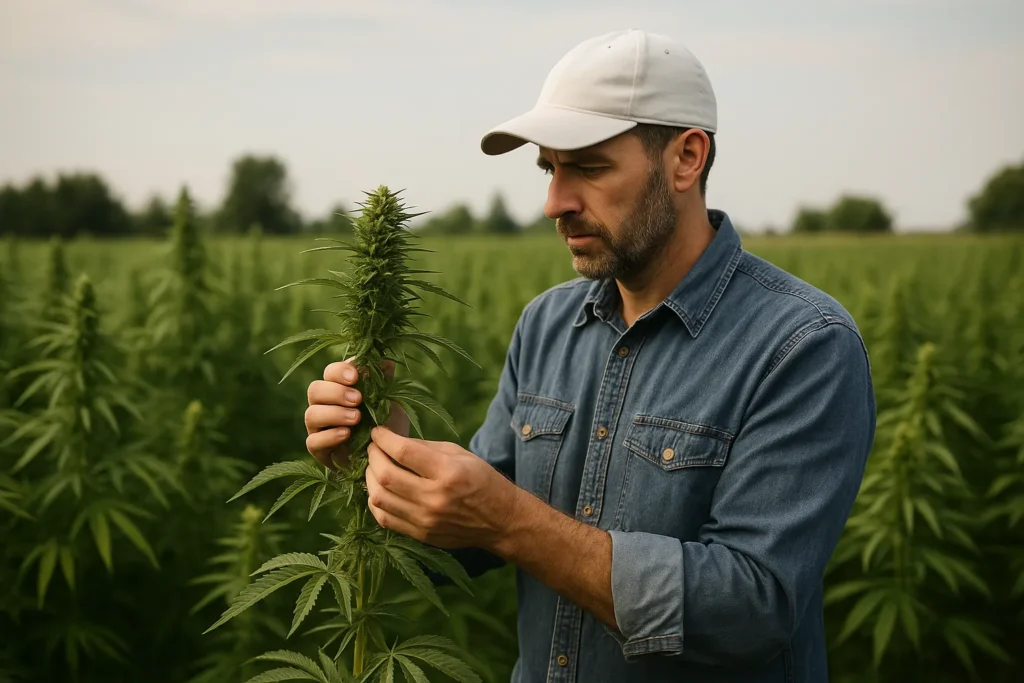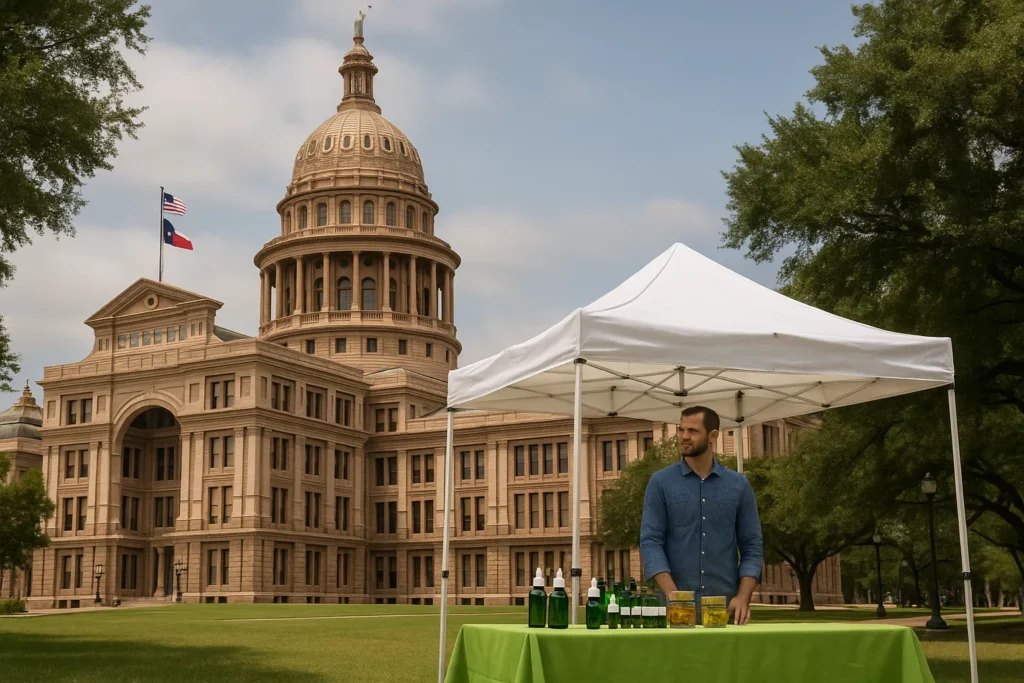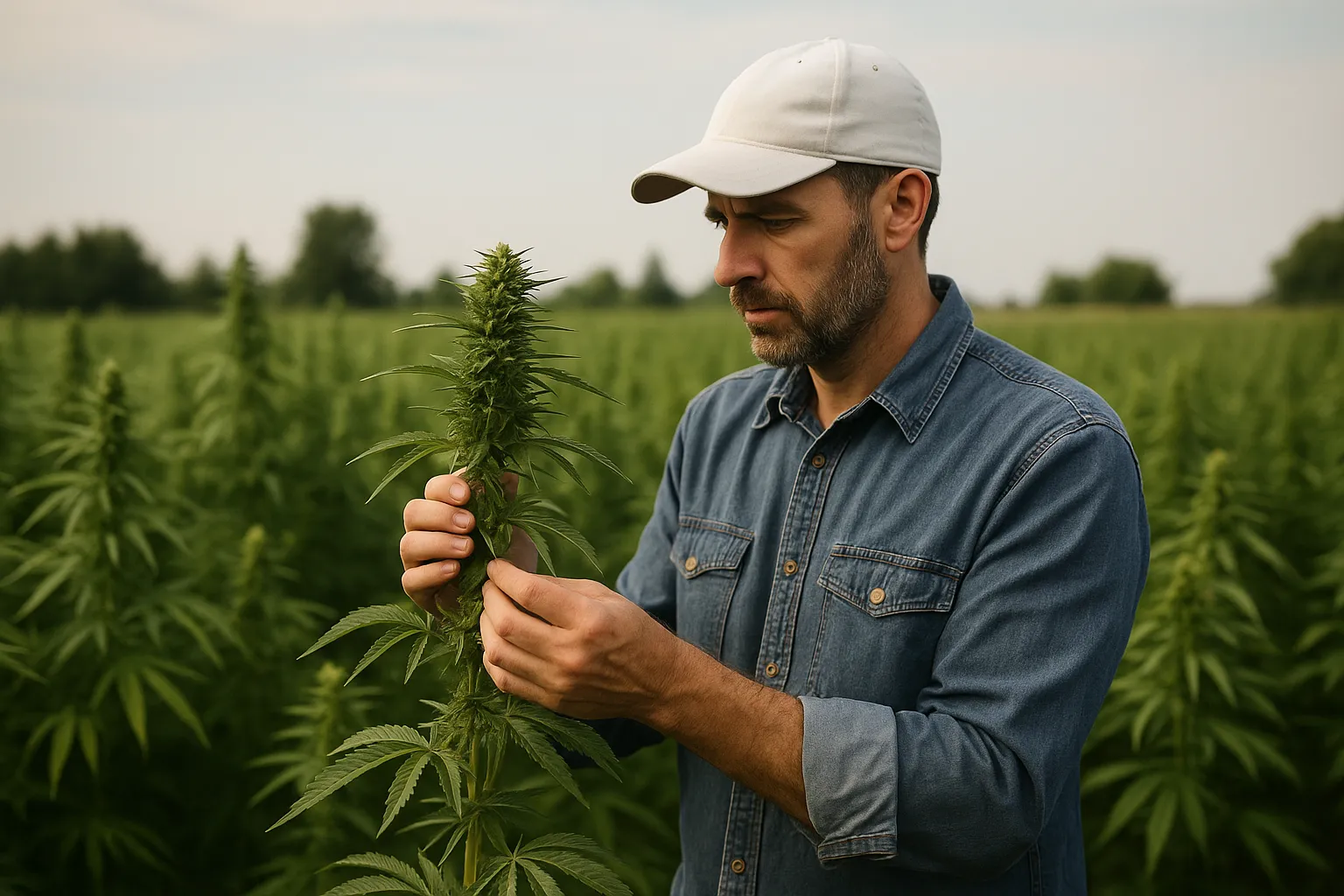
Interest in hemp and CBD has grown rapidly in Texas, but the laws surrounding them are more complex than many realize. Industrial hemp and CBD laws affect everything—from what farmers are allowed to cultivate to which products can be legally sold in stores. A product’s legality can hinge on details like its THC content, labeling, and method of consumption. This confusion often extends into courtrooms, businesses, and everyday households. Understanding how Texas regulates hemp and CBD is essential for avoiding legal trouble. This article explains what’s legal, what’s restricted, and what Texans need to know to stay compliant.
What Is Industrial Hemp?
Industrial hemp refers to cannabis plants that contain 0.3 percent or less THC by dry weight. THC is the psychoactive compound that gives marijuana its mind-altering effects. Hemp, on the other hand, doesn’t produce a high.
Texas legally defines hemp based on this low THC content. This includes all parts of the plant—seeds, stalks, and extracts. Hemp has a wide range of uses, from textiles and construction to wellness and cosmetics. CBD, or cannabidiol, is one of the most common products derived from hemp.
A Look Back: Legalization of Hemp in Texas
Texas legalized industrial hemp with House Bill 1325, signed into law in June 2019. This bill allowed the production, processing, and sale of hemp and hemp-derived products. It aligned Texas laws with the federal 2018 Farm Bill, which removed hemp from the list of controlled substances.
This legislation gave farmers the green light to grow hemp, but under strict guidelines. The Texas Department of Agriculture (TDA) launched a hemp licensing program and created rules for testing and THC compliance. Products made from hemp, such as CBD oil, also became legal—if they met certain conditions.
CBD Oil in Texas: What the Law Says
CBD, a compound extracted from hemp, has exploded in popularity. It’s found in oils, edibles, lotions, and even pet treats. But just because a product contains CBD doesn’t mean it’s automatically legal in Texas.
Here’s what the law requires:
THC Content Matters
The CBD product must contain no more than 0.3 percent THC. Anything higher falls under marijuana classification and remains illegal unless prescribed under the state’s Compassionate Use Program.
Proper Labeling
CBD products must list their ingredients, batch number, and QR code linking to lab test results. The label must clearly state that the THC content is compliant with Texas law.
No Health Claims
Retailers cannot market CBD products as a cure or treatment for any disease. The Food and Drug Administration (FDA) has only approved one CBD-based drug, Epidiolex, for rare forms of epilepsy.
Retail Registration
Sellers must register with the Texas Department of State Health Services (DSHS). This applies to physical stores and online shops.
Growing Industrial Hemp in Texas
Those who want to grow or handle hemp must follow state rules and obtain a license. The TDA oversees the program and requires growers to follow specific steps.

Licensing Requirements
Applicants must pass a background check. Anyone convicted of a drug felony in the past ten years is not eligible. A separate license is needed for each facility.
Testing and Compliance
Growers must have their crops tested for THC content before harvest. A third-party lab must verify the level does not exceed 0.3 percent. If a sample fails, the crop may need to be destroyed.
Recordkeeping
Licensed hemp producers must keep detailed records about seed sourcing, planting, harvesting, and lab testing. These records must be available during inspections.
Hemp Processing and Manufacturing Rules
Businesses that process hemp into finished products—such as CBD oil or textiles—also need licenses. These operations face similar regulations to growers. They must track THC content, keep records, and label products correctly. Some cities have added their own local rules on top of state requirements.
What’s Off Limits?
Despite legalization, not all hemp products are legal in Texas. State law draws a hard line around smokable hemp.
Smokable Hemp Ban
The DSHS banned the manufacture and retail sale of smokable hemp products in 2020. This included hemp flower and pre-rolls. However, in 2022, a Texas appeals court ruled that the manufacturing ban could not be enforced, but the retail sales ban still stood. As of now, it remains illegal to sell smokable hemp in stores within the state, though it’s legal to possess.
Delta-8 and Other THC Isomers
Delta-8 shares a close chemical structure with Delta-9 THC, the primary substance responsible for marijuana’s psychoactive effects. It can be produced using CBD extracted from hemp. The legality of Delta-8 remains in question. In 2021, the Texas Department of State Health Services moved to classify it as a Schedule I substance. Legal challenges were filed soon after, and the issue has yet to be resolved. While the courts continue to review the situation, some retailers still offer Delta-8 items for sale.
Law Enforcement and Gray Areas
The legal hemp market has created challenges for law enforcement. Officers cannot distinguish hemp from marijuana by appearance or smell alone. Lab testing is often required to determine THC levels, which slows down prosecution.
In some cases, people have been arrested for possessing what they claimed was legal hemp or CBD. If a product lacks a label or lab results, officers may assume it’s illegal until proven otherwise.
To stay safe, consumers should keep a copy of lab results and buy from reputable sellers. Retailers should follow all rules to protect themselves and their customers.

Key Agencies Regulating Hemp in Texas
Several state agencies oversee hemp production and CBD sales. These include:
- Texas Department of Agriculture (TDA): Issues licenses for hemp growers and processors.
- Texas Department of State Health Services (DSHS): Regulates retail CBD sales and product labeling.
- Texas Department of Public Safety (DPS): Enforces drug laws and handles lab testing in criminal investigations.
Is CBD the Same as Medical Marijuana?
No. CBD sold in stores is different from medical marijuana. Texas has a Compassionate Use Program (CUP) that allows certain patients to get low-THC cannabis by prescription. These products can contain up to 1 percent THC and must be dispensed through licensed providers.
CBD oil sold in stores does not require a prescription but must follow the 0.3 percent THC rule. Medical cannabis products under CUP offer different formulas and require doctor supervision.
The Future of Hemp and CBD in Texas
The hemp industry continues to grow in Texas, but lawmakers and regulators may make changes as the market evolves. Some lawmakers have pushed for clearer rules on Delta-8 THC, while others want tighter controls on CBD advertising. Farmers and businesses hope for better clarity and less red tape, while public health officials focus on safety and consumer protection.
Texans interested in the hemp or CBD industry should stay updated on changes to state rules and licensing. Legislative sessions often bring new proposals related to cannabis and hemp.
Final Thoughts
Texas permits the sale, farming, and use of hemp and CBD—but only under strict guidelines. According to industrial hemp and CBD laws, hemp must contain no more than 0.3% THC, and all CBD products must meet state requirements for labeling and lab testing. While some forms of CBD are widely available, smokable hemp remains banned, and legal debates around products like Delta-8 THC continue to evolve.
Anyone working with hemp in Texas—whether growing, processing, or selling—must follow licensing requirements, regularly test products, and maintain detailed records. With industrial hemp and CBD laws still changing, staying informed is the best way to remain compliant and avoid legal risks.

Other Related Articles:
- Can Cannabis Use Affect Your Parenting and Custody Rights?
- Legalizing and Regulating Cannabis: Economic Implications for Texas
- The Cannabis Industry In Texas: Opportunities and Challenges
- CPS Drug Testing in Texas: First Visits Unveiled!
- The Significance of CPS Drug Test Results
- Types of Drug Tests Used by CPS in Texas
- Understanding CPS Drug Testing Laws in Texas: A Comprehensive Guide
- CPS Drug Testing at Home in Texas: Legal Procedures and Implications
- Failing a CPS Drug Test for Marijuana in Texas
- What to Do When CPS Asks for a Drug Test in Texas
FAQs
Industrial hemp is a variety of the Cannabis sativa plant species, known for its versatility and sustainability. It contains very low levels of THC, the psychoactive compound in marijuana, typically less than 0.3% THC by dry weight. This low THC content distinguishes it from marijuana.
Yes, industrial hemp is legal in Texas. The state legalized its cultivation, processing, and sale in 2019, aligning with federal regulations outlined in the 2018 Farm Bill.
Look for third-party lab testing, which ensures the product’s cannabinoid content and quality. Reputable sources provide this information. Consult with a healthcare provider if using CBD for specific medical purposes.
The cultivation of industrial hemp is legal in Texas but requires appropriate licensing and compliance with THC limits. Growing cannabis plants with THC content exceeding 0.3% is considered illegal marijuana cultivation.
Yes, you can travel with hemp-derived CBD products in Texas as long as they comply with THC content regulations. Proper documentation and adherence to state and federal regulations are crucial during transportation.



